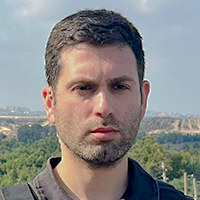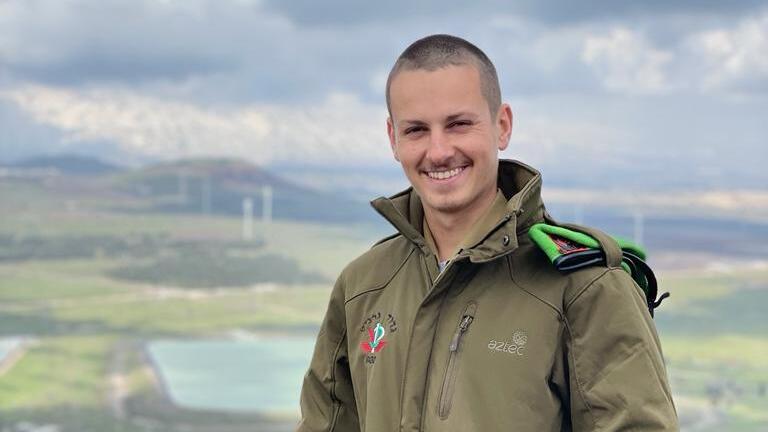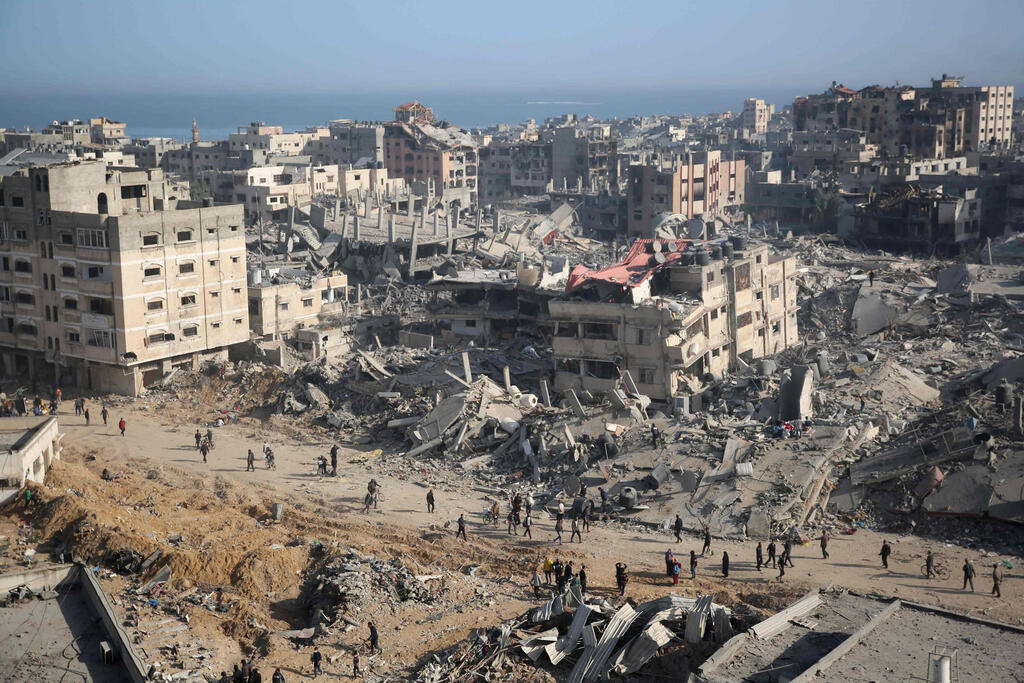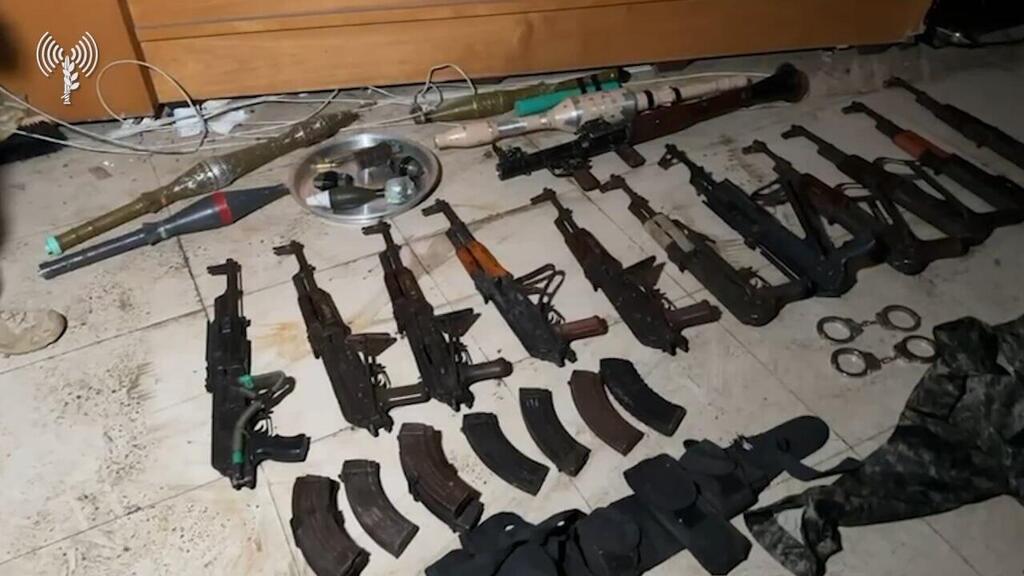Nahal Brigade 932nd Battalion troops fighting in the Gaza Strip went on a week's leave on Thursday, after a day of debriefing sessions with professionals, marking their first break since the outbreak of the war on October 7. The soldiers played a key role in the operation at Gaza City’s Al Shifa Hospital, the most intensive IDF effort since the commencement of phase three of the war, involving repeated IDF raids on terror targets in the northern Gaza Strip.
One of the soldiers who was killed in action, Staff Sergeant Lior Raviv of the 932nd Battalion, was part of a detachment that scanned a residential building near Al Shifa and evacuated 30 members of one Palestinian family in the early days of the operation.
The operation’s clandestine nature and area’s dense urban construction, encompassing the medical facility and adjacent streets in western Gaza City, made it impossible to evacuate the population using “roof knocking,” a practice of dropping non-explosive or low-yield devices on the roofs of targeted civilian homes as a prior warning of imminent bombing attacks to give the inhabitants time to flee the attack.
About 5,500 patients, medical staff and several hundred displaced Gazans who were sheltering in adjacent residential buildings could not be evacuated without letting hundreds of terrorists, including high-ranking ones hiding in the hospital, escape.
After the large family was evacuated, Raviv's unit began to clear the house. However, one of the family members, hiding in the bathroom armed with a pistol, fatally shot the Nahal fighter at close range. His comrades eliminated the assailant after a brief firefight, and the terrorist's father was detained for interrogation.
Raviv, one of the elite fighters in the battalion's operational company, was on the verge of discharge and was to receive a certificate of excellence from the unit's commanders, but he did not live to receive it. On Thursday, it was presented to his grieving parents.
IDF forces engaging in close-quarters combat adjacent Al Shifa Hospital
Inside the hospital as well, soldiers faced close-quarters combat amid a civilian population. Therefore, the core of the mission was carried out by more experienced fighters skilled in indoor exchanges of fire involving civilians and terrorists, from units such as Shayetet 13, Nahal Reconnaissance Unit and Duvdevan.
In many respects, the successful operation at Al Shifa, which included the arrest of approximately 500 terrorists and another 400 suspects, and the elimination of 200 terrorists, could serve as a "preview" for the forces in urban warfare in places like Rafah, where over a million Palestinians are sheltering in densely populated tent encampments, among them thousands of terrorists. This is under the assumption that the IDF will not be able to evacuate the entire population from Rafah, many of whom have already been displaced there from the north and center of the Gaza Strip.
"Most of the engagements in the Al Shifa operation occurred on the third day of action, after the enemy was initially in shock and needed some time to adjust to us," told Ynet Col. Daniel, commander of the 401st Brigade’s 52nd Battalion.
"They fired mortars at us, not just anti-tank and sniper fire. We powered the generators for the operation of the alternative field hospital we set up for Al Shifa, a significant humanitarian challenge that enabled the hospital to continue functioning."
"One day," he recounted, "a Palestinian man came to us with a shrapnel wound in his leg. After we checked him and confirmed he was not a terrorist, we provided first aid and directed him to the alternative field hospital. The fighters still don't grasp the magnitude of the achievement from this operation, all the intelligence we gathered, the significant number of weapons we seized and the high-ranking operatives we captured or eliminated."
In some encounters, suicide bombers attempted to detonate themselves on Israeli commandos with grenades attached to their bodies. The Armored Corps also welcomed an additional tank platoon, the third regular one in the battalion, instead of in the reserves, as part of an expansion of the armored brigades following lessons learned from the war. The 52nd Battalion is the first to expand in this manner.
Nahal's 932nd Battalion Deputy Commander Major Amiad, who operated in the Al Shifa area, describes the hospital as "a terror base that contains a hospital, not a hospital that contains a terror command."
Having so far operated in combat zones that have been cleared of civilians, Nahal troops were instructed to engage anyone they encountered in recent months, especially at the height of ground operations.
This time it was different, according to Maj. Amiad. "We had to explain to the soldiers that not every person they see is a terrorist, and they excelled in the task with a perfect score,” he said.
“We made a significant effort to capture terrorists for interrogation, gave them multiple opportunities to surrender and sent drones into the rooms where they were holed up to force them out. But anyone who opened fire or tried to flee was immediately neutralized. It was a mentally complex mission because we couldn't scan the entire hospital complex without putting many soldiers at risk."
Therefore, he explains, "we conducted many pressure cooker operations (a tactical procedure involving firing various means at buildings to force the terrorists inside to come out), and as a result, you see the images of destruction from the hospital after we left."
Lieutenant S. from the Nahal Reconnaissance Unit, operating under Shayetet 13, added, "We evacuated the population using special means, but quickly encountered armed terrorists in the hospital corridors, engaging in face-to-face combat. We took proactive measures to ensure there were no innocents, even though in one instance, a terrorist barricaded himself in a bathroom within a patient's room. We knew how to fight on one hand, and on the other, to supply them with evacuation means, mattresses and hospital beds."








